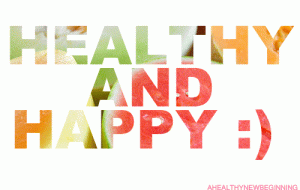 If you’ve never worked out hard and felt the exhausted but pleasant feeling of accomplishment you get, you probably don’t realize that working out can make you happy. I see the difference in people from how stressed they were when they began the workout at the Schertz/Cibolo boot camp and that smile on their face when they finished. You may think that it’s just that they’re glad it’s over, but there’s more to it than that! It is a feeling of accomplishment, there’s no doubt, but there are scientific explanations for that happy feeling.
If you’ve never worked out hard and felt the exhausted but pleasant feeling of accomplishment you get, you probably don’t realize that working out can make you happy. I see the difference in people from how stressed they were when they began the workout at the Schertz/Cibolo boot camp and that smile on their face when they finished. You may think that it’s just that they’re glad it’s over, but there’s more to it than that! It is a feeling of accomplishment, there’s no doubt, but there are scientific explanations for that happy feeling.
Exercise burns off the hormones of stress.
The body was designed to face stressors like wild animals and enemy tribes. Unfortunately, it didn’t get the message that we’ve advanced beyond that. Even though there are some real stressors in the world that require the fight or flight response, most of them are angry bosses, crying children and traffic jams, where the reaction of running or fighting isn’t appropriate. The body still manufactures stress hormones that prepare it to run or fight and those make significant changes that leave you feeling uncomfortable, agitated and if left unchecked, can affect your overall health, not just your mood. Exercise burns off those hormones by mimicking the activities of running or fighting and puts you back to normal.
Your body produces hormones that make you feel good.
When you act on the fight or flight response, your brain releases both a protein called BDNF and hormones, such as endorphins. Endorphins are feel good hormones that act similar to morphine. They activate the same brain receptors and help reduce pain and any discomfort in the body. In fact, they’re chemically similar to morphine. The BDNF helps protect the brain from stress. While you need to have a vigorous workout to experience the rush, even light exercise, like walking helps reduce stress.
Your brain is doing more than producing endorphins.
When you workout, the brain works harder and increases serotonin and nor epinephrine. Those are neurotransmitters that help send the message of happiness throughout the body. While the endorphins play a role, the serotonin and nor epinephrine is the delivery system and you leave the gym feeling great again with a better outlook on life. Exercise is now part of programs for anxiety and depression.
- You can get too much of a good thing. If you’re working out hard more than seven or eight hours a week, you’ll feel worse, not better. You’ll know if you’re working out too much because you feel worse.
- Regular exercise can help boost your confidence. Studies show that even before you see results you feel better about yourself for exercising. Results only boost that good feeling.
- Exercise can provide a socially acceptable coping mechanism. Don’t punch anyone in the face hit a punching bag or workout until you’re too tired to care! Exercise also gets your mind off your troubles and can end that loop going in your head.
- Exercise can be quite social. Socializing, even if it’s just a smile, can lighten your mood. It’s far better than sitting and stewing alone.
